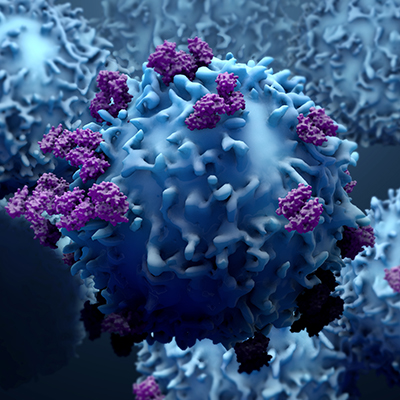November 14, 2022 -- The National Cancer Institute (NCI) has awarded a five-year, $5.7 million grant to a team of Weill Cornell Medicine researchers to fund the development of mRNA vaccines to prevent cancer in high-risk populations.
The cancer vaccines will use the same type of mRNA technology leveraged by the Moderna and Pfizer COVID-19 vaccines. Initially, the team will focus their studies on mice, with the goal of clinical trials in humans within the next five years.
Among the planned research projects is an effort to develop and validate an mRNA vaccine for Lynch syndrome, an inherited genetic condition that greatly increases the risk of developing colon and other cancers before the age of 50. Another project will seek to develop and assess an mRNA vaccine for precancerous lung lesions, known as lung non-solid nodule (NSN) pre-malignant neoplasms.
"Now is the right time to develop these lung cancer vaccines," said principal investigator Dr. Timothy McGraw, professor of biochemistry in cardiothoracic surgery and of biochemistry and leader of the Cancer Biology Program at Weill Cornell Medicine. "We know a lot about the immunologic changes that allow lung tumors to grow, as well as some of the associated mutations."
Outside the scope of the NCI grant, the researchers are pursuing other mRNA vaccination projects including targeting a pediatric cancer syndrome called Constitutional MisMatch Repair Deficiency (CMMRD) and infection with Fusobacterium nucleatum, a bacterium that promotes colon cancer development.
"We envision this program as a platform for the creation of several types of cancer vaccines," said project leader Dr. Steven Lipkin, the Gladys and Roland Harriman Professor of Medicine and vice chair for research in the Sanford and Joan Weill Department of Medicine at Weill Cornell Medicine. "We have the technology to make vaccines that carry different mRNA cargo to activate the immune system in various ways to prevent cancer."
Copyright © 2022 scienceboard.net










